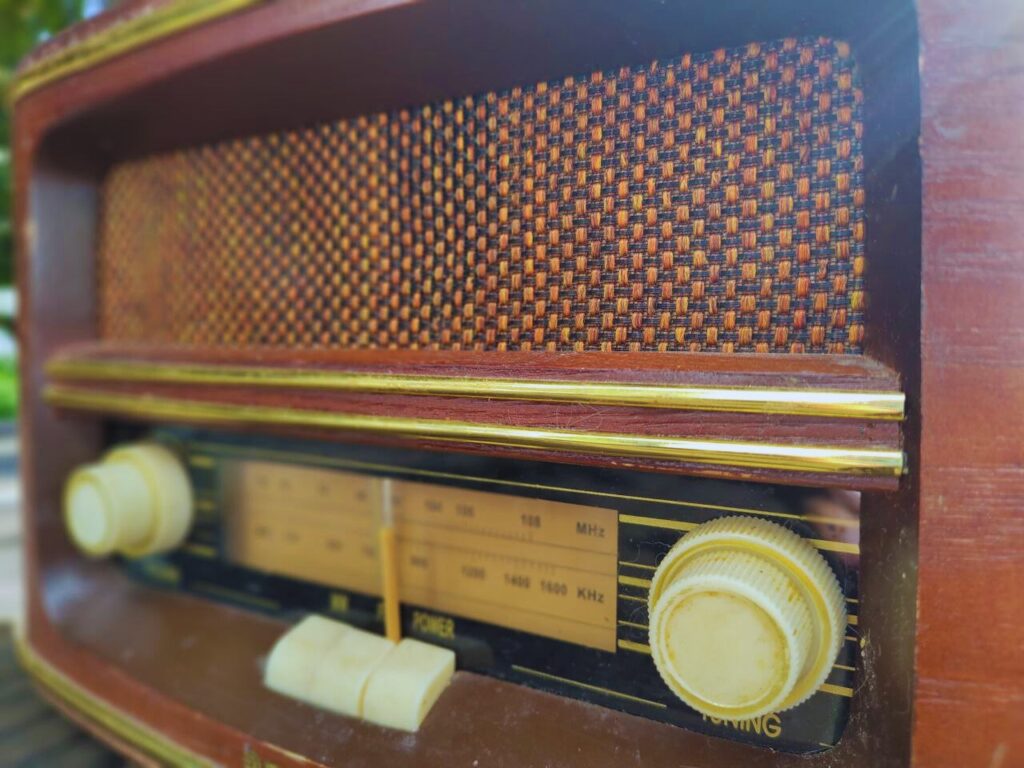In the world of music production and distribution, the term “radio edit” often comes up, especially among artists, producers, and music marketers. If you’ve ever wondered what exactly a “radio edit” is, why it’s so important, and how it influences a track’s reach and success, you’re in the right place.
radio edit is a pop-centric concept that has been lazily universalized. For non-popular genres on radio, classical, contemporary, experimental, jazz, electroacoustic, and etc, the idea of editing the music itself is often artistically illegitimate. Yet featuring on radio might need refinements. Not in form, but in sound physics.

Defining Radio Edit
A “radio edit” is a version of a song that is specifically edited and formatted to be suitable for radio play. It involves making changes to the song so it can seamlessly fit the radio’s requirements, which are often guided by specific content policies and listener expectations.
Typically, these edits focus on:
- Length: Radio stations prefer songs that are concise and generally run between 3 to 4 minutes. This allows for more tracks to be played in an hour and ensures that the pacing of the broadcast is consistent. If an original song is much longer (as in some extended versions or live renditions), it’s shortened by removing certain sections, like instrumental solos or repeated choruses.
- Content: Profanity, explicit lyrics, or anything that might be deemed offensive to a general audience is removed or substituted. In some cases, lyrics are simply bleeped out, while in others, they are creatively replaced or re-recorded.
- Mixing and Mastering Adjustments: Radio edits sometimes undergo a slight remix or mastering tweak to make them sound crisp and balanced when broadcast over FM/AM airwaves or through digital streaming on radio platforms.
Why Radio Edits Matter
- Compliance with Broadcasting Regulations: In many countries, radio stations have to adhere to strict broadcasting rules. These rules include limitations on explicit content and guidelines to ensure songs are appropriate for audiences of all ages. A radio edit ensures that the song doesn’t get banned or limited on major stations, thus maximizing its exposure.
- Attention Span and Engagement: The average radio listener’s attention span tends to favor shorter, more engaging tracks. Radio edits ensure the most impactful parts of the song are featured, maintaining listener interest and enhancing the chance of repeat plays.
- Brand Image and Marketability: For artists and labels, creating a radio-friendly version of a track also helps market the music to a wider audience. It makes a song more likely to be added to a station’s playlist rotation, which in turn can significantly boost the song’s popularity and streaming numbers.
The Editing Process
The process of creating a radio edit can be nuanced, involving both artistic and technical considerations. Here’s how it typically unfolds:
- Trimming Down the Length: Editors work to condense the track without sacrificing its core essence. For example, they may eliminate extended intros, fade out the ending earlier, or cut down instrumental solos.
- Cleaning Up Explicit Content: This involves replacing or removing offensive words. It can be challenging to ensure that the changes don’t feel jarring or disrupt the song’s flow.
- Sound Optimization for Broadcast: Because radio compression and frequency limitations can alter how a song sounds, slight modifications might be made to ensure the music sounds optimal when broadcast.
Examples in Practice
- Pop and Hip-Hop Music: Songs from these genres often contain lyrics or themes that need altering for radio play. Artists sometimes record alternate versions of their tracks, incorporating “clean” lyrics that maintain the integrity of the song while avoiding explicit content.
- Electronic and Progressive Rock: Tracks from these genres, which often exceed 7 or 8 minutes, are shortened significantly to meet radio duration standards.
Radio Edit in non-popular genres of music
In classical and contemporary music, length is not a flaw to be corrected. A symphonic movement, a spectral work, or a long-form electroacoustic piece unfolds according to internal logic, not broadcast impatience. Cutting bars or compressing structure would fundamentally distort meaning. That’s why you almost never encounter a “radio edit” in the pop sense for these genres. The work is either broadcast in full, or not at all. This is a quiet but firm resistance to the time tyranny of commercial radio formats.
However, to claim that classical and contemporary music are untouched by radio requirements would be naïve. The intervention simply happens after composition, during transmission preparation. Broadcasters and mastering engineers often apply radio-oriented mastering that prioritizes intelligibility over spectacle. This includes subtle but crucial changes: optimizing the signal-to-noise ratio, reducing extreme dynamic ranges that would collapse under FM transmission, and reshaping frequency balance so pianissimo passages don’t disappear into broadcast noise. These adjustments are not about accessibility, they are about survival.
Contemporary and experimental music complicate this further. Works that rely on silence, micro-dynamics, or fragile textures are especially vulnerable on radio. A piece conceived for a concert hall or gallery space may lose its conceptual clarity when broadcast unless the mastering consciously compensates for transmission artifacts, background hiss, or listener environments. In these cases, the “radio edit” is not an edit at all, it is a translation, comparable to adapting a manuscript for print without rewriting the text.
So yes, non-popular genres do need something akin to a radio edit, but not in the reductive sense of shortening or sanitizing content (as we already defined it earlier). What they require is radio-aware production ethics: mastering that respects the work’s ontology while acknowledging the brutal constraints of broadcast technology. When done well, this process remains invisible. When done poorly, it erases the very qualities that make these genres worth broadcasting in the first place.
If pop radio edits exist to make music fit the market, classical and contemporary radio adaptations exist to protect meaning. That distinction matters, at least for me.
Are Radio Edits Always Necessary?
Not every song needs a radio edit, but for artists who want to reach mainstream audiences or have their music played on popular FM stations, it is often crucial. Many streaming services and platforms also have curated radio playlists where radio edits are prioritized to match the platform’s guidelines.
For independent artists, understanding the value of a radio edit can make a huge difference in how their music is received and promoted. Working with a good mixing and mastering engineer who understands these standards is essential to ensure the song translates well on-air.
Conclusion and Call to Action
Radio edits play a pivotal role in making songs radio-ready, helping artists maximize their reach while staying compliant with broadcasting norms. Whether you’re a seasoned artist or new to the music scene, understanding the significance of a radio edit can be crucial for your music’s success.
If you’re gearing up to release your next single, consider whether a radio edit might be necessary and beneficial for your track.
RadioEdit #RadioVersion #BroadcastEdit #RadioPlay #BroadcastMusic #MusicEditing #AudioEditing #MusicProduction #MasteringForRadio #RadioMastering #BroadcastStandards #LoudnessNormalization #DynamicRange #SignalToNoiseRatio #AudioEngineering #MusicDistribution #BroadcastAudio #NonCommercialRadio #ClassicalRadio #ContemporaryMusic #ExperimentalMusic #IndependentMusic #MusicTechnology







